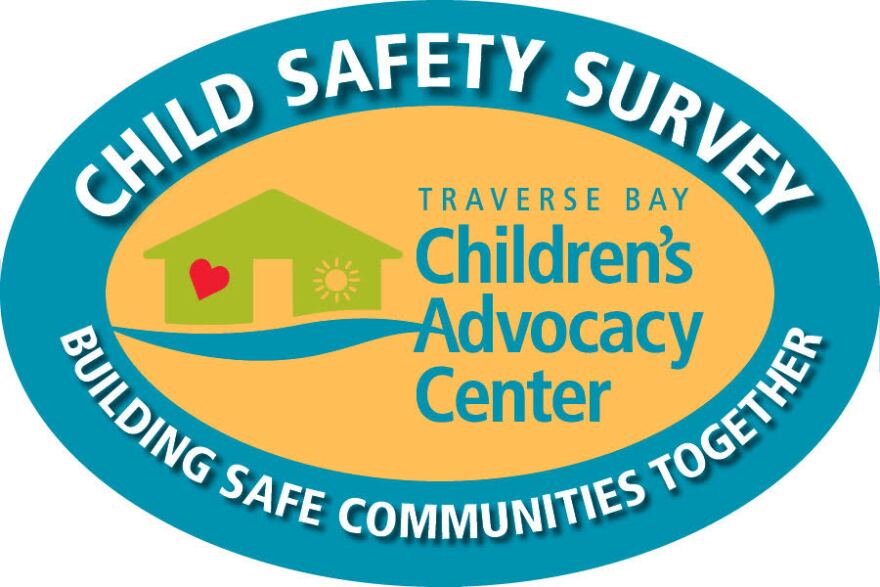A non-profit that helps victims of child sex abuse is trying something new.
They’re sending surveys to northwest lower Michigan households, asking people questions about child safety.
The group says with that knowledge, they’ll be better equipped to stop sexual abuse.
The Traverse Bay Children’s Advocacy Center is filled with small rooms with pastel colored walls and toys in every corner.
“They’ll set out different toys or puzzles or books relevant to the children coming in. Sometimes other siblings are coming along and they’re having to wait through this process,” says Executive Director Sue Bolde.
She says the rooms are meant to be a comforting space, where families can try to relax as they deal with the harrowing experience of a child reporting sexual abuse.

Since the center opened in 2010, more than 2,000 children have come through its doors.
Bolde says while that’s a horrifying number, it’s promising that more children are reporting sex crimes, when before many suffered in silence.
But, for Bolde, moving cases forward on an individual basis isn’t enough.
“You can learn the skills to keep kids safe,” she says. “You can learn how to recognize abuse. You can learn how to make a report when you suspect harm. But unless everyone in the community has a similar mindset you’re not really going to affect change.”
Bolde says she wants society to be more alert to warning signs that could lead to abuse. But to do that, she has to know what people think. That starts with a survey of hundreds of people in the five-county region gaging what different communities see as social norms.
“Those are those unspoken rules that we adhere to without even knowing it, that shape our behavior and our perspectives,” Bolde says.
The Children’s Advocacy Center asked Michigan State University to help craft the survey. It asks people about their views on child safety and what their community thinks.

Dennis Martell is the executive director of Michigan State’s Social Norms Center.
He’s modeled the child safety survey off of his work studying excessive drinking in undergrads, recently published in the Journal of American College Health.
Martell found that students overestimated how many drinks their peers had. To keep up with the group, they drank more themselves.
But, when students were shown data that the norm was to drink less, he says students began drinking less.
“Once you clear up what the misperception is,” Martell says. “We find that the behavior follows that.”
Martell says the same idea can be applied to child sex abuse.
“What do you think the percentage of people in your community would do if they knew this child was so and so? And then what would you do?” he says. “So we ask both the perceptions and the behavior questions. We try to see if there is a distinct gap in between them.”
He thinks that gap is where progress can be made to protect children.
Right now, the team is waiting for some of the surveys to come back. It’s taking longer than expected because they need most of the households to respond.
“We have to try again and again to make sure people don’t naturally put it in their garbage and not open it up,” Bolde says.
Once the data is analyzed, she says she’s planning to hold information sessions in different communities to talk about their findings.
“It’s not just these folks off in a room deciding, ‘oh this is the research we got and the data and this is what we think people need to do. And we’re going to go out there and have some kind of campaign that tells people that this is what they should do.’ No, we want to engage the community in that process of figuring out solutions,” Bolde says.
WTCM radio host Christal Frost Anderson says she’s anticipating learning the results. She is a survivor of sexual abuse in her childhood and often brings guests on her shows to talk about the issue.
“Keeping it in the public conversation makes it easier to talk about,” Anderson says. “That leads to discussions that you’re having around the dinner table, or with your friends, in your book clubs. These are really important things.”
She says if the Advocacy Center can learn what tight-knit communities across the region think, like religious groups, or high school sports programs, it’ll make an impact.
“I think that’s the big beauty of this survey is that we’re talking communities and the way they’re going to tackle the epidemic in their community.”


